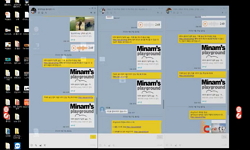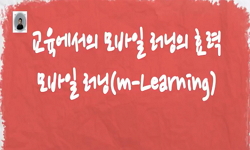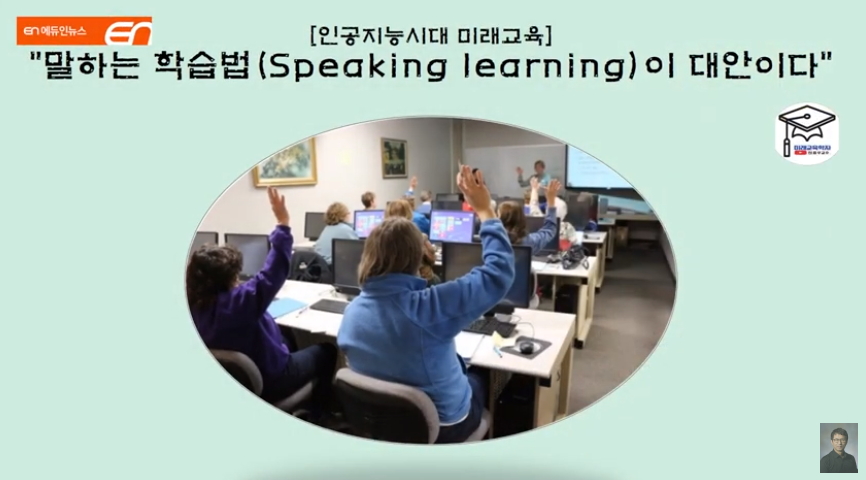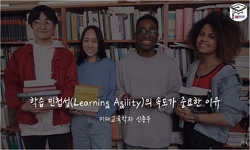본 연구는 노년교육에 적극적으로 참여하는 여성 고령자들의 지속적이고 열정적인 교육참여 동기는 무엇이며 어디에서 기인했는가에 대한 문제의식에서 출발하였다. 이에 여성 고령자의 ...
http://chineseinput.net/에서 pinyin(병음)방식으로 중국어를 변환할 수 있습니다.
변환된 중국어를 복사하여 사용하시면 됩니다.
- 中文 을 입력하시려면 zhongwen을 입력하시고 space를누르시면됩니다.
- 北京 을 입력하시려면 beijing을 입력하시고 space를 누르시면 됩니다.

여성 고령자의 평생학습 양상과 노년기 학습의 의미- 학습생애사를 중심으로 - = Lifelong Learning Patterns of Elderly Women and Meaning of Old Age Learning -Focusing on learning life history-
한글로보기https://www.riss.kr/link?id=A106211550
- 저자
- 발행기관
- 학술지명
- 권호사항
-
발행연도
2019
-
작성언어
-
- 주제어
-
KDC
338
-
등재정보
KCI등재후보
-
자료형태
학술저널
-
수록면
87-112(26쪽)
-
KCI 피인용횟수
1
- DOI식별코드
- 제공처
-
0
상세조회 -
0
다운로드
부가정보
국문 초록 (Abstract)
본 연구는 노년교육에 적극적으로 참여하는 여성 고령자들의 지속적이고 열정적인 교육참여 동기는 무엇이며 어디에서 기인했는가에 대한 문제의식에서 출발하였다. 이에 여성 고령자의 전생애 학습경험을 분석하여 평생학습 양상과 노년기 학습의 의미를 파악함으로써 평생교육 연구방법의 다양성과 노년 평생교육의 실천적 시사점을 탐색하고자 하였다. 이를 위해 학습생애사 연구방법을 적용하여 여성 고령자 세 명을 대상으로 심층면담을 하였다. 그 결과, 첫째, 생애사를 통한 평생학습 양상은 다음과 같이 나타났다. 일제강점기와 6.25전쟁을 겪은 세 할머니들은 어린 시절, 남녀유별교육을 통해 여자로서의 삶을 강요받았고, 청소년기에는 아버지의 부재로 인한 가난으로 가장의 역할을 배웠다. 성인기에는 불안정한 결혼생활로 인해 인내와 경제력을 키웠으며 노년기에 안정된 생활환경과 웰다잉교육을 통해 비로소 ‘자아’를 찾고 성공적 노화의 길로 들어섰다. 어린 시절 학습자의 자세는 수동적이지만 순응하면서 성실하게 임했고, 노년기에는 자기주도적 학습자로 적극적인 태도를 보였다. 둘째, 세 할머니 삶을 통해 본 학습의 의미는 ‘역할을 알려주는 지침서, 다음으로 나아갈 수 있는 디딤돌, 안정과 치유를 주는 나만의 안식처’이며, 노년기 학습의 의미는 자신의 삶에 위안과 위로가 되며, 진정한 자아를 찾아가는 과정이었으며, 자아통합을 이루게 하였으며, 조화와 지혜를 주는 것이었다. 노년기에 지속적 학습참여 동기는 긍정적 정서 유발과 주변으로부터의 인정이다. 이러한 결과가 노인 평생교육에 주는 시사점은 다음과 같다. 첫째, 노인을 복지 수혜자나 소외계층으로 바라보는 시각에서 평생학습의 가장 큰 수요자로서 보는 인식의 변화가 필요하며, 둘째, 노년기 발달과업인 자아통합과 마무리를 위한 다양한 수준의 평생교육 프로그램 기획과 내용이 필요하며, 셋째, 노인평생교육 연구에서 학습자중심, 사람중심의 연구방법이 확대되어 전생애 단계에서 필요한 평생교육 프로그램 개발과 운영의 중요성을 제시하는 것으로 의의를 찾고자 한다.
다국어 초록 (Multilingual Abstract)
This study started from a sense of problem about the motivation of the elderly women who participate actively and constantly in aged education and where it originated. This study tried to explore the diversity methods of lifelong education research an...
This study started from a sense of problem about the motivation of the elderly women who participate actively and constantly in aged education and where it originated. This study tried to explore the diversity methods of lifelong education research and practical implications of lifelong education by analyzing the lifelong learning experiences of elderly women and to understand the meaning of lifelong learning and old age learning. Three elderly women were interviewed in depth by applying the study method of life history. As a result, first, lifelong learning patterns through life history were as follows. During the Japanese colonial period and the Korean War, the three grandmothers were forced to live as girls through childhood education, learned the role of the father in poverty due to the absence of father. In adulthood, unstable marriage brought patience and economic power, Through the stable living environment and well-being education in old age, they found ego and entered the path of successful aging. The childhood attitude of the child was passive but conform and faithful. In the old age, they showed an active attitude as a self-directed learner. Second, the meanings of learning through the life of three grandmothers are a guide to the role , stepping stone to the next , ‘my own haven for stability and healing’. The meanings of old age learning are comfort and consolation for their life, process of finding a true self, achieving self-integration and giving harmony and wisdom. Motivation to participate in continuous learning in old age is positive emotional inducement and recognition from the surroundings. The implications of these results for elderly education and lifelong education are as follows. First, to change the point of looking at the elderly from as beneficiaries or marginalized class to the largest consumer of lifelong education is needed. Second, for the integration of the self and the completion of the elderly development task various levels of lifelong education program planning and content are needed. Third, through narrative research methods such as learning life history a learner, person centered research approach rather than a policy or program centered research should be enlarged.
목차 (Table of Contents)
- Ⅰ. 서론 Ⅱ. 이론적 배경 Ⅲ. 연구 방법 Ⅳ. 연구결과 Ⅴ. 논의 및 결론
- Ⅰ. 서론 Ⅱ. 이론적 배경 Ⅲ. 연구 방법 Ⅳ. 연구결과 Ⅴ. 논의 및 결론
참고문헌 (Reference)
1 Freire, P., "희망의 교육학" 프런티어 2002
2 강대중, "한국의 노숙인, 그 삶을 이해한다는 것" 서울대학교출판문화원 2012
3 성기월, "한국노인의 성공적 노화와 지혜와의 관련성" 한국노인간호학회 13 (13): 48-57, 2011
4 김동배, "한국 노인의 성공적 노화 척도 개발을 위한 연구" 한국사회복지학회 60 (60): 211-231, 2008
5 박형란, "한국 노인의 성공적 노화 과정" 고려대학교 대학원 2011
6 김미혜, "한국 노인의 '성공적 노후 척도' 개발에 관한 연구" 한국노년학회 25 (25): 35-52, 2005
7 이경희, "평생학습의 새로운 패러다임으로서의 생애사연구 : 사례재구성을 통한 중년여성의 학습개념을 중심으로" 한국평생교육학회 12 (12): 73-95, 2006
8 이병준, "평생학습연구에 있어서의 교육학적 생애사 접근" 한국평생교육학회 16 (16): 91-112, 2010
9 최운실, "평생학습 참여성과 분석연구" 한국교육개발원 2005
10 강대중, "평생학습 연구 방법으로 학습생애사의 의의와 가능성 탐색" 한국평생교육학회 15 (15): 201-223, 2009
1 Freire, P., "희망의 교육학" 프런티어 2002
2 강대중, "한국의 노숙인, 그 삶을 이해한다는 것" 서울대학교출판문화원 2012
3 성기월, "한국노인의 성공적 노화와 지혜와의 관련성" 한국노인간호학회 13 (13): 48-57, 2011
4 김동배, "한국 노인의 성공적 노화 척도 개발을 위한 연구" 한국사회복지학회 60 (60): 211-231, 2008
5 박형란, "한국 노인의 성공적 노화 과정" 고려대학교 대학원 2011
6 김미혜, "한국 노인의 '성공적 노후 척도' 개발에 관한 연구" 한국노년학회 25 (25): 35-52, 2005
7 이경희, "평생학습의 새로운 패러다임으로서의 생애사연구 : 사례재구성을 통한 중년여성의 학습개념을 중심으로" 한국평생교육학회 12 (12): 73-95, 2006
8 이병준, "평생학습연구에 있어서의 교육학적 생애사 접근" 한국평생교육학회 16 (16): 91-112, 2010
9 최운실, "평생학습 참여성과 분석연구" 한국교육개발원 2005
10 강대중, "평생학습 연구 방법으로 학습생애사의 의의와 가능성 탐색" 한국평생교육학회 15 (15): 201-223, 2009
11 박성희, "평생교육으로서의 연구방법론: 생애사 분석법" 한국성인교육학회 6 (6): 29-57, 2003
12 최라영, "평생교육계 원로들의 생애사를 통해 본 '지혜로운 나이 듦'에 관한 연구" 아주대학교 대학원 2012
13 김길자, "평생교육 관점에서의 노인교육 프로그램 연구 : 노인교실을 중심으로" 성신여자대학교 대학원 2004
14 조용환, "질적연구 : 방법과 사례" 교육과학사 1999
15 이효선, "질적 연구에 의한 한국 노인들의 삶의 이해" 한국노인복지학회 (31) : 69-96, 2006
16 John W. Creswell, "질적 연구방법론-다섯가지 접근" 학지사 2010
17 양흥권, "지역혁신형 학습도시시스템 구축과정에 관한 연구 : 일본 카케가와시의 평생학습도시 사례를 중심으로" 서울대학교 대학원 2004
18 박상복, "전문직 은퇴자의 성공적 노화에 대한 요구 분석 : 역량, 학습 및 사회활동을 중심으로" 경성대학교 대학원 2010
19 황영신, "장자철학에 드러난 자유로운 삶에 대한 연구" 한국교원대학교 교육대학원 2012
20 안동림, "장자(莊子)" 현암사 2010
21 김미령, "여성노인의 삶의 만족도에 영향을 미치는 성공적 노화의 구성요소" 한국노년학회 28 (28): 33-48, 2008
22 김종천, "성인학습자의 문해학습 참여를 통한 생애경험과 인식전화에 관한 연구" 백석대학교 대학원 2014
23 정민승, "성인학습의 이해" 에피스테메 2010
24 장휘숙, "성인심리학 : 성인발달, 노화, 죽음" 박영사 2008
25 양은아, "성인 인문학습과정에 나타난 삶과 학습의 선순환적 경험구조에 관한 연구" 서울대학교 대학원 2009
26 홍현방, "성공적인 노화와 노인의 종교성 관계 연구" 한국노년학회 22 (22): 247-259, 2002
27 강 인, "성공적 노화의 지각에 관한 연구" 20 : 95-118, 2003
28 조명희, "성공적 노화에 관한 연구동향 - 학술지 게재논문을 대상으로-" 한국생활과학회 23 (23): 231-249, 2014
29 정민승, "생애발달과 노년" 한국방송통신대학출판부 2010
30 윤택림, "문화와 역사연구를 위한 질적연구방법론" 아르케 2011
31 박성희, "농촌여성노인의 생애사분석을 통한 성공적 노화에 관한 지역사회교육 전략" 한국평생교육학회 15 (15): 217-244, 2009
32 유 경, "노화와 심리" 학지사 2014
33 심정자, "노인의 자아통합감 증진을 위한 의미치료 프로그램 개발" 서울불교대학원대학교 2015
34 정승일, "노년기 그룹 자서전쓰기 활동 참여자의 배움에 대한 내러티브연구" 4 (4): 41-79, 2012
35 Jean Clandinin, "내러티브 탐구:교육에서의 질적연구의 경험과 사례" 교육과학사 2007
36 원영희, "교육복지 관점에서 본 노년기 교육의 문제점 및 개선방안" 한국평생교육학회 18 (18): 239-263, 2012
37 "고령자 통계"
38 기영화, "고등교육기관에서의 노인들의 평생교육 프로그램 참여요인 정립에 관한 연구" 한국성인교육학회 8 (8): 89-110, 2005
39 서유나, "가족을 주제로 한 집단미술치료가 정신분열증 환자의 자아회복에 미치는 효과" 상명대학교 복지상담대학원 2009
40 구 선, "觀, 십이연기와 천부경" 연화출판사 2008
41 Merriam, S. B, "Qualitative research and case study applications in education" Jossey-Bass 1998
42 Connelly, F. M., "Narrative inquiry: Experience and story in qualitative research" Jossey-Bass 2000
43 Antikainen, A, "Living in a learning society: life-histories, identities and education" The Falmer Press 1996
44 SeidmanI, E, "Interview as Qualitative Research:A Guide for Researchers in Education and the Social Sciences" Teachers College, Columbia University 1990
45 Jarvis, P, "Human learning: An holistic approach" Routledge 1-15, 2005
46 Creswell, J. W., "Designing and conducting mixed methods research" sage 2007
47 Erikson, E. H., "Childhood and society" Norton 1963
48 Jarvis, P, "Adult learning in the social context" Sanfrancisco ;Jossey-Bass 1987
동일학술지(권/호) 다른 논문
-
세대 간 정보격차 해소를 위한 노인 휴대폰 활용교육의 성과
- 한국노년교육학회
- 한정란(Han, Jungran)
- 2019
- KCI등재후보
-
- 한국노년교육학회
- 윤혜순(Yun Hye-Sun)
- 2019
- KCI등재후보
-
중고령 학습자의 학점은행제 학위취득 경험에 대한 질적 연구
- 한국노년교육학회
- 박지애(Park Jiae), 이경희(Lee Gyeounghee)
- 2019
- KCI등재후보
-
세대갈등과 세대통합에 대한 고찰: 노년교육학적 관점을 중심으로
- 한국노년교육학회
- 원영희(Won, Younghee)
- 2019
- KCI등재후보




 스콜라
스콜라








